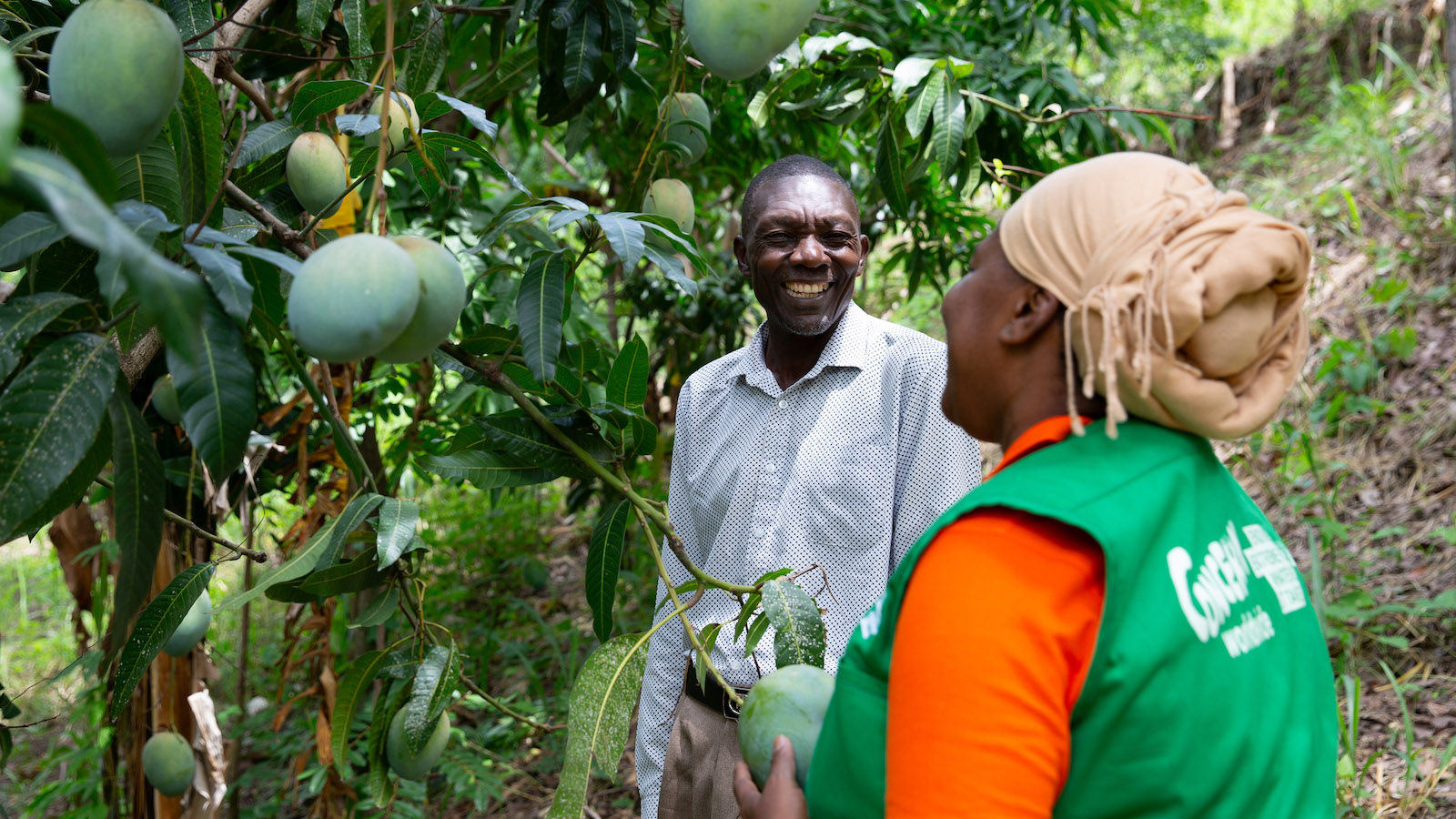On any given day, Concern Worldwide works with about 120 different local and national partner organizations across our operational footprint. In fact, partnership is essential to the success of our mission.
As old as the hills
The concept of partnership is as old as human presence on planet Earth. In fact, it probably predates the time when we first dragged ourselves out of the post-primordial soup. The animal kingdom has long relied on partnerships to survive and thrive. Like the plover birds that help crocodiles maintain their oral hygiene, or the ants that protect aphids from predators and parasites in exchange for honeydew. Ostriches and Zebras often graze together for safety, as the former has excellent eyesight and a poor sense of smell, and the latter has an inverse set of capabilities.
Partnership is about combining the unique strengths and capabilities of different entities to achieve mutual benefit. It’s a common approach in the humanitarian sector and Concern Worldwide specifically acknowledges in its core policy documents that the organization cannot achieve its mission in isolation.
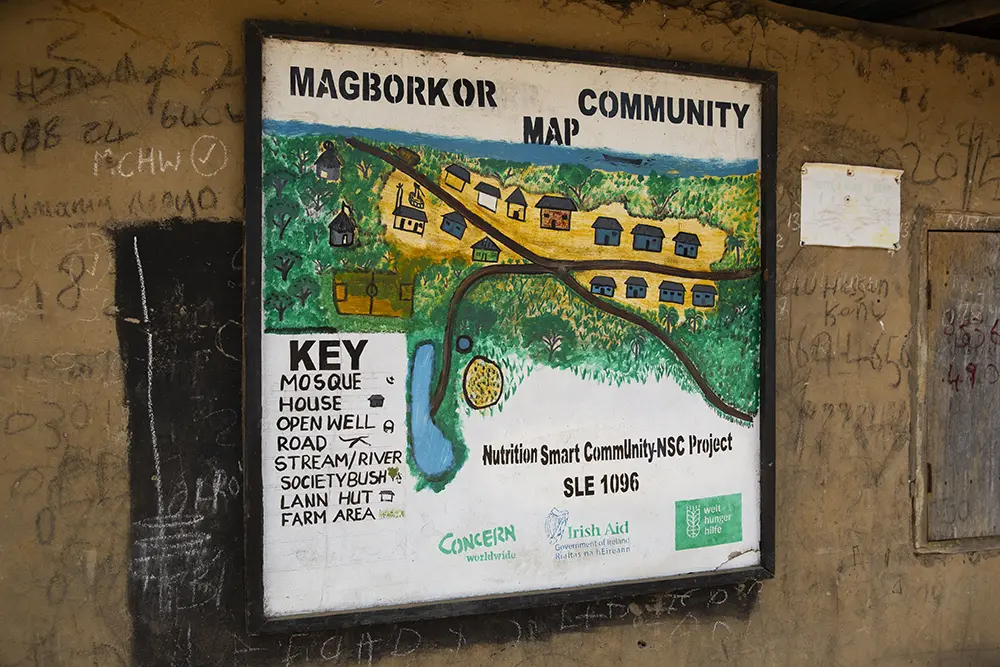
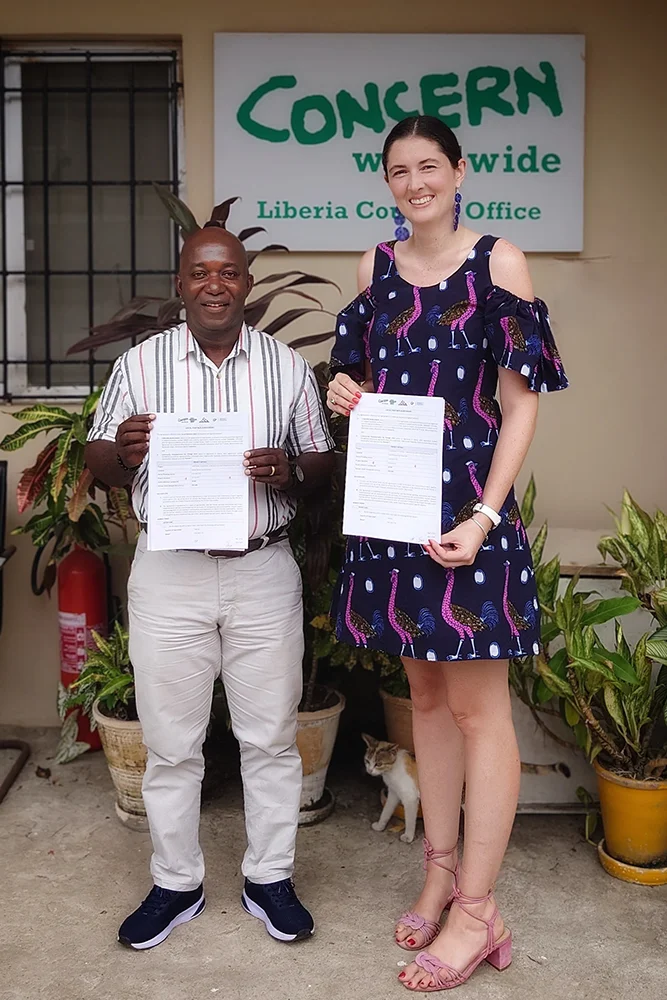
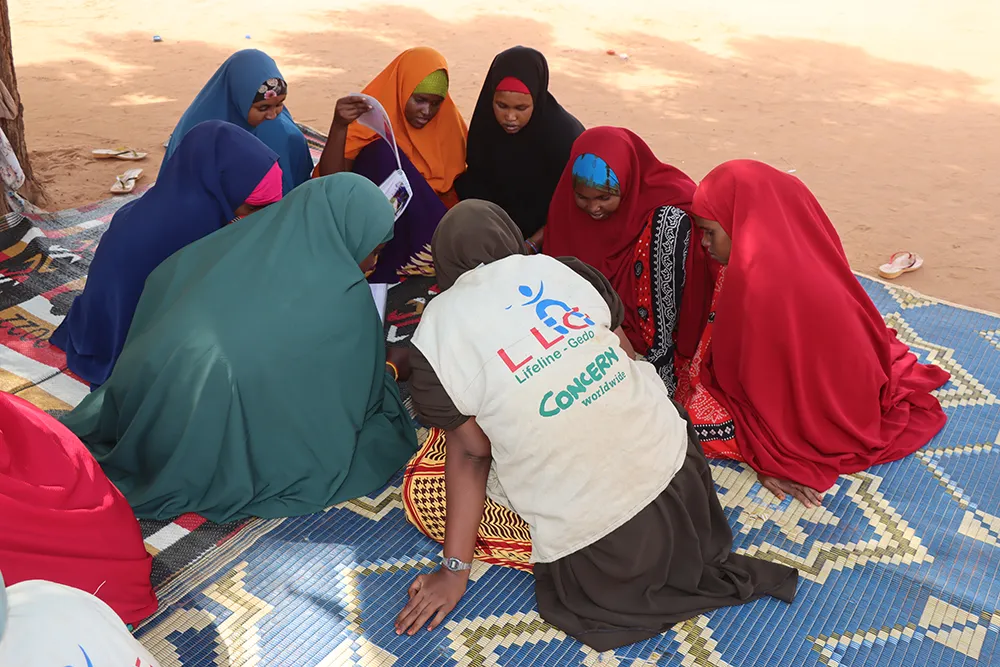
E is for equitable
Concern has been involved in partnerships with other organizations for decades but, according to Andrew Clenaghan, our Senior Partnerships Advisor, the nature of these relationships has significantly evolved over time. “Basically, it’s been an ongoing progression from working with partners to avail of their local knowledge and access to hard-to-reach communities... to collaborating with partner organizations as equals – sharing technical expertise and knowledge with one another to ensure program quality.”
Concern’s partnership policy states that a core objective is to “develop and support strong, independent and accountable local institutions… which can be agents of long-term change within their own societies.” Our Partnership Principles emphasize mutual respect, mutual accountability, transparency, acknowledgement of each other’s contributions, shared risk, shared responsibility and value-addition.
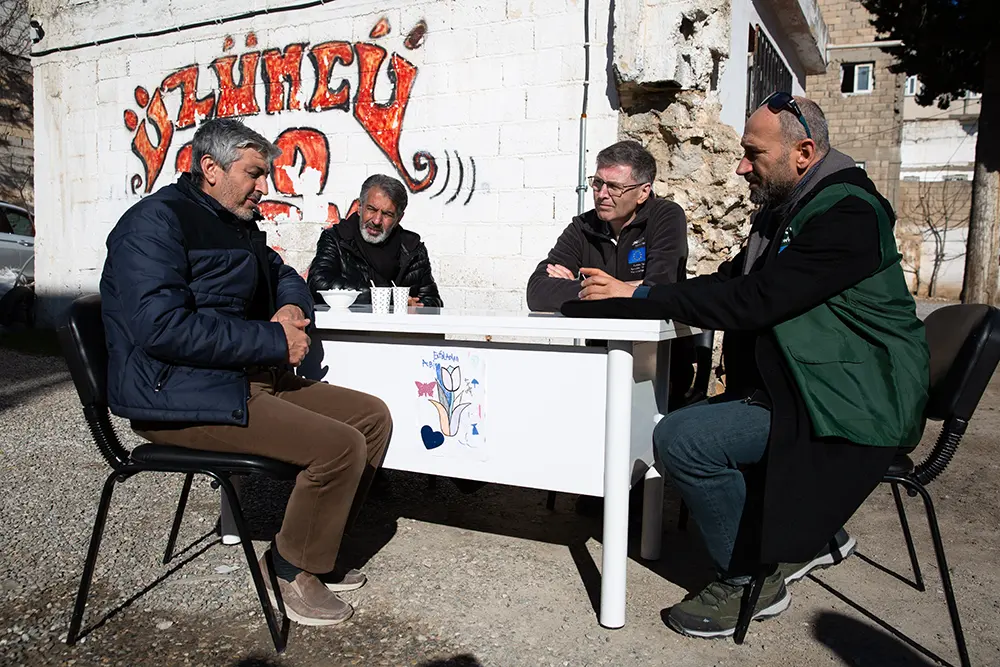
The Grand Bargain
In May 2016, major international donors and organizations came together in Istanbul for the World Humanitarian Summit, resulting in an agreement called the Grand Bargain. The agreement stresses the importance of involving a diverse range of stakeholders, including local communities, to ensure that humanitarian responses are more effective and culturally appropriate.
Although far from perfect, the Grand Bargain did serve to focus minds on the importance of local partnerships and give a boost to those seeking an end to the intrinsically patriarchal “charity” model of humanitarian action. For decades, much of the aid sector operated on a top-down approach, with programs designed by outsiders and people treated as “beneficiaries.” One of the major commitments of the Grand Bargain was to channel at least 25% of funding as directly as possible to local and national responders.
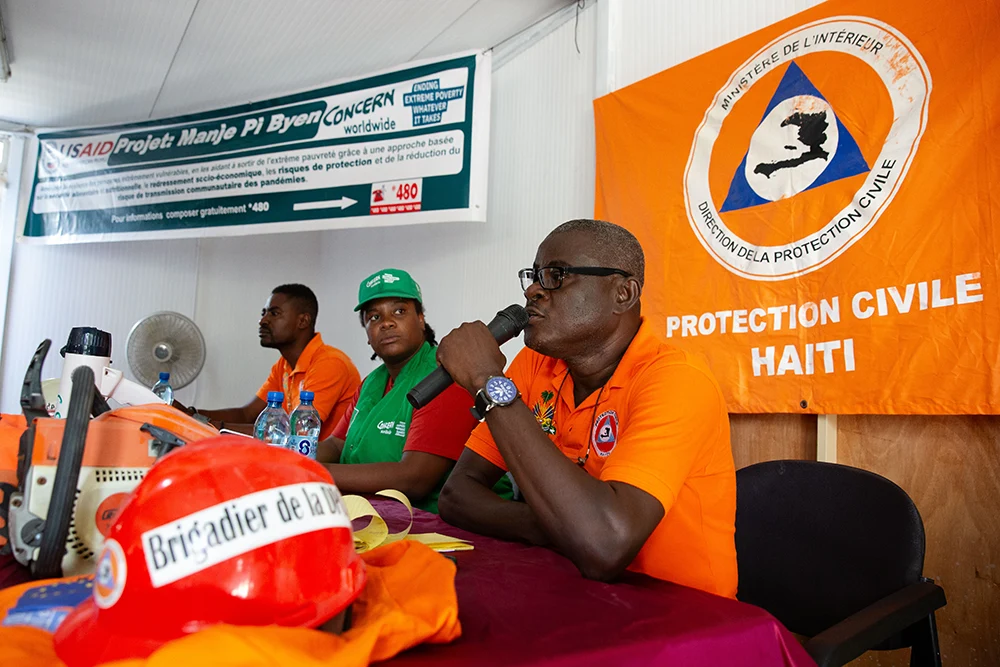
All of this is closely linked to a process which has become known as “localization.” In a nutshell, it's the process of ensuring that local actors, such as community organizations and local governments, get the knowledge and resources they need to lead and manage humanitarian activities. It makes perfect sense but remains a work in progress. If you want to find out more about the challenges to making localization a reality, pop over to our sister site, Beyond Barriers.
What it looks like in reality
Concern’s range of partnerships is broad... and broadening all the time. There are big international non-governmental organizations (NGOs), national NGOs, government departments, local civil society or community-based organizations, and even individual communities. There’s also a move towards partnerships with private sector entities, which previously would have been viewed either as contractors or donors.
Concern has about 15 staff members in different operational contexts around the world with the specific task of furthering our work in partnerships and localization, backed up by a team of advisors in our support offices. Let’s take a whirlwind tour of some of the contexts in which Concern works and look at examples of how we work in partnerships.
Haiti, a prime example
Haiti is a country with a thriving civil society and many well-established local and national organizations working in the humanitarian and human development space. It’s a great example of partnership in action.
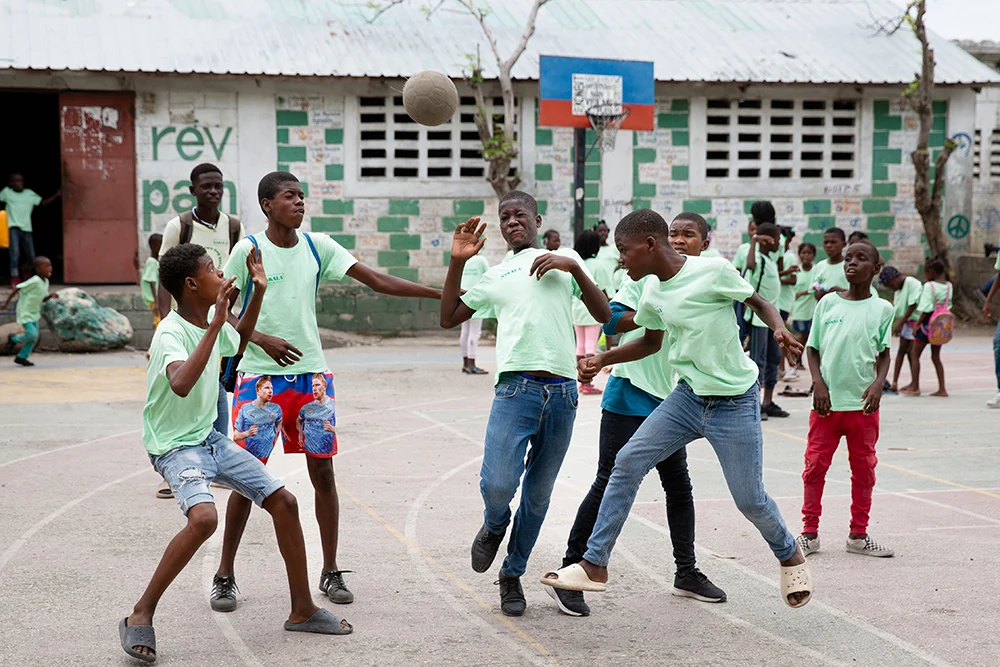
One of Concern’s current programs is a 5-year, multimillion dollar drive to improve conditions for farming families in the rural Centre department and help connect them with vendors and markets in the capital. Implementation is centered on a partnership model. Among those involved are Rezo Fanm Fwontalye, a network of women’s associations with experience in local development initiatives and women empowerment, and Zanmi Agrikòl / Zanmi Lasante, a local NGO working with peanut producers.
In Port-au-Prince, a city with many societal problems driven by violence and poverty, we partner with a number of organizations that focus on social protection. Program activities range from working with women who are survivors of gender-based violence to supporting youth who are at risk of recruitment by gangs and armed groups. One of our favorite partnerships in the city is with the Comité Consultatif Jeunes, a group of young people working to build the foundations of a better future for generations to come.
Alliances
As the name suggests, Alliance 2015 is a strategic network of seven international humanitarian organizations, set up in 2015 with a view to leveraging combined resources and knowledge. It’s a form of partnership and often manifests in joint action during emergencies, where one or more of the members has a presence.
When the conflict in Ukraine escalated dramatically in 2022, Concern joined up with Alliance 2015 members who had existing operations on the ground to provide humanitarian aid and assistance. That partnership has since evolved into a separate entity, known as the Joint Emergency Response in Ukraine (JERU), which has worked with numerous local organizations to helps hundreds of thousands of people affected by the conflict.
Concern's Carly Ziska spent time as Partnerships Advisor in Ukraine and she says the approach being adopted by JERU goes much further than the standard model. "The team established an 18-month project centered on the identification and comprehensive support of three strategic partners, which goes beyond the implementation of any specific program or grant. This represents a genuine investment in the partner’s systems and processes, in its staff and volunteers, and in its organizational development, based on shared values and goals and the accomplishment of common strategic outcomes."
Incidentally, Alliance 2015 has a combined network of local partners totaling almost 1,500 across 90 countries.
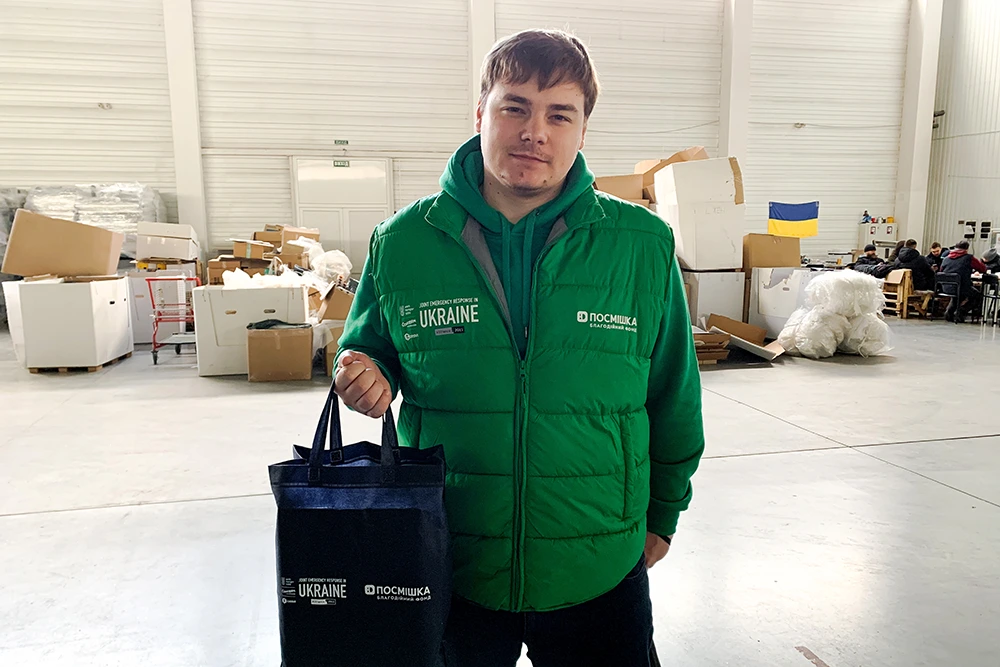
Consortia
Concern gets involved in consortia quite a lot. Often, it’s a form of partnership required by major institutional donors for large grants that involve different types of activities across different sectors. It can involve both international and national organizations, who all bring different strengths to the party, with one of them assuming a leadership role.
One example is the Saving Lives in Sierra Leone Consortium, which is a multi-year $20 million health-systems strengthening program, led by Concern Worldwide and primarily focused on responding to interconnected issues related to women’s, girl’s, and children’s lives and health outcomes. Partners include: Helen Keller International, Humanity Inclusion, Kings Global Health Partnerships, and Send Sierra Leone, alongside two technical specialist partners, Welbodi Partnership and the Italian Association for Solidarity Among People.
The RAPID model
The Concern team in Pakistan pioneered a highly successful system of local partnerships under the umbrella of a series of USAID-funded programs known as RAPID, which impacted millions of lives since 2009. Designed to facilitate a fast response to natural disasters, it involved the establishment of a pre-approved network of national and local organizations. In times of crisis, these organizations could submit funding proposals for humanitarian activities and get the go-ahead within days, rather than the weeks or months it might normally take. More than that, they could also avail of capacity-building and training sessions to help them be more effective in their work. The legacy of the RAPID model lives on and you can read more about it here.
Further together
It’s a no-brainer to proactively pursue partnerships in the drive to eliminate extreme poverty. No one organization has the experience, breadth of knowledge, and access to resources needed to affect profound and lasting change. Concern currently has partnership arrangements of varying shapes and sizes in 23 of our operational countries, and we are always on the lookout for new opportunities. Our ultimate goal is to put ourselves out of business, and one of the most effective ways to achieve that will be through a strong, well-resourced, and resilient local humanitarian sector. Partnerships are a key part of building that reality.
In the wise words of Concern’s Humanitarian Ambassador, Dominic MacSorley: “We have no business being a never-ending presence in the countries where we work. Our duty is to provide humanitarian support to people and communities in need, but more importantly to help them build their own capacity and develop their own access to the resources they need to solve their own problems.”
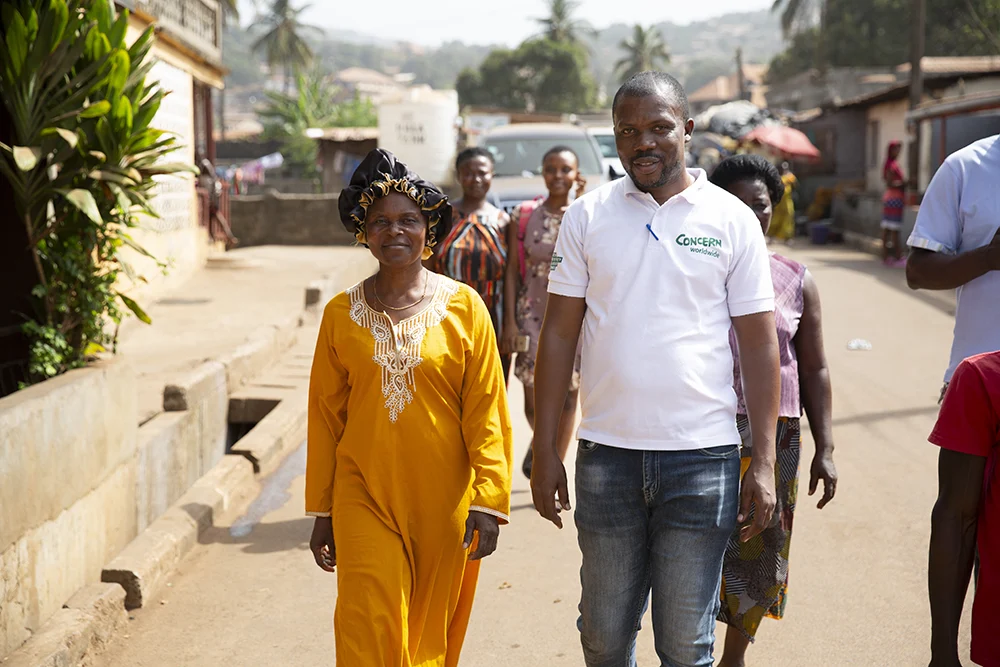
The header image for this story was artificially generated by Adobe Firefly




